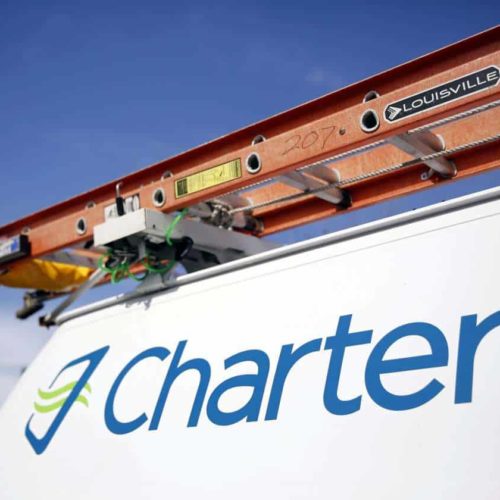Introduction
Cable company Charter Communications Inc.’s proposed $57 billion buyout of Time Warner Cable Inc. made big news last week. But the deal hasn’t sparked anywhere near the level of concern from public interest advocates that Comcast Corp.’s failed bid to buy Time Warner did.
Despite the size of the deal, it is expected to have a much better chance of making it through the regulatory process than Comcast’s bid. Why?
In a nutshell, regulators were concerned that a combined Comcast-Time Warner Cable would have had much greater control over the broadband market than a Charter deal. If Comcast were successful, it would have laid claim to 57 percent of all Internet connections nationwide compared to 30 percent with a Charter-Time Warner Cable combination.
Regulators feared that Comcast, the nation’s largest cable provider, combined with Time Warner, the second-largest cable provider, would have pushed Internet traffic back to its cable network, thus protecting its lucrative cable customer base.
Because of changing technologies and consumers’ viewing habits, such as paying for online streaming videos and programs delivered over the Internet, broadband has become a more important player in the entertainment business.
In addition, Comcast’s ownership of NBC Universal raised worries that the new cable giant would favor its own programming over other networks. Charter doesn’t own a broadcast company or any programming interests.
Charter’s been busy. The company also wants to buy Bright House Networks LLC for $10 billion. If that deal goes through, a combined Charter-TWC, which would be called New Charter, would have 24 million customers compared to Comcast’s 27 million.
The differences between the two deals have brought muted and measured responses from those who had strongly opposed the Comcast-TWC merger.
“Unlike [the] Comcast [deal], which was awful no matter how you sliced it, we need more detail about this proposed transaction to know whether or not it will serve the public interest,” said Harold Feld of Public Knowledge, a consumer advocacy group that opposed the Comcast-TWC merger.
Sen. Al Franken, a Democrat from Minnesota, who immediately said he had serious reservations about the Comcast-TWC merger when it was announced, seemed to take a lighter tone in a letter sent to the Federal Communications Commission last week.
“To protect the American people, it is essential that regulators thoroughly examine the proposed deal and, if allowed to proceed, consider the need for strong and enforceable consumer protections to guard against any anti-competitive effects and to promote the public interest,” Franken wrote.
And then there were FCC Chairman Tom Wheeler’s phone calls this month to Tom Rutledge, chief executive officer at Charter, and Time Warner Cable CEO Rob Marcus, telling them that the FCC’s decision against the Comcast-TWC deal didn’t indicate the agency was necessarily against all mergers. The calls surprised many telecommunications analysts and federal regulators.
But before anyone thinks Charter’s deal is a slam dunk, some analysts point to the same regulatory optimism that met the proposed Comcast-TWC merger when it was first announced in February 2014. At the time, Stifel Nicolaus analysts Christopher King and Josh James said in a note to clients that, while opposition will occur, “we ultimately expect the transaction will be approved.”
For sure, some opposition has lined up against the deal.
“Charter will have a tough time making a credible argument that consolidating local monopoly power on a nationwide basis will benefit consumers,” wrote Derek Turner, research director at Free Press, a media advocacy group in Washington. “Indeed, the issue of the cable industry’s power to harm online video competition, which is what ultimately sank Comcast’s consolidation plans, are very much at play in this deal.”
Former FCC Commissioner Michael Copps, now a special advisor with the consumer advocacy group Common Cause, called into question the argument that New Charter’s 30 percent share of the broadband market is small enough to pass scrutiny at the FCC and Justice Department.
“Give me a break! It’s ‘only’ 30% of the market?” Copps wrote in an email. “Add Comcast and what’s left for competition? What’s left for consumer benefits?”
Read more in Inequality, Opportunity and Poverty
Broadband
Airwaves auction may shrink — not increase — wireless competition
Spectrum auction may help small carriers, but not enough to take on goliaths AT&T, Verizon
Broadband
FCC says price counts in announcing new broadband plan
Phone subsidy program to expand to wireless broadband


Join the conversation
Show Comments